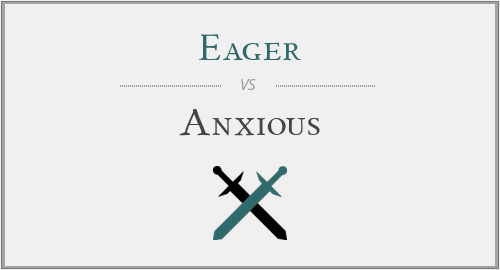Eager vs. Anxious: Navigating Emotions in Language
When expressing anticipation or excitement, the terms "eager" and "anxious" are often used interchangeably, but they convey different emotional states. This article aims to clarify the distinctions between "eager" and "anxious," shedding light on their meanings, applications, and appropriate usage in various contexts.
Correct Usage:
Eager:
"Eager" is used to describe a positive and enthusiastic anticipation or willingness to do something. It implies a sense of enthusiasm, excitement, or readiness for a positive experience. It does not carry a negative connotation.
Anxious:
Conversely, "anxious" is used to describe a state of uneasiness or apprehension. It implies a feeling of worry, nervousness, or fear about a future event. Unlike "eager," "anxious" carries a potential negative connotation.
Meanings and Applications:
Eager:
Use "eager" when expressing positive anticipation, enthusiasm, or readiness for a particular event or activity. It indicates a positive and optimistic emotional state.
Anxious:
Use "anxious" when describing a state of unease or worry about a future event. It conveys a sense of nervousness or apprehension, often associated with negative emotions.

Examples:
Correct: She was eager to start her new job and meet her colleagues.
Correct: He felt anxious about the upcoming exam, fearing he might not be adequately prepared.
Appropriate Usage:
Be mindful of the emotional context when choosing between "eager" and "anxious." If the emotion is positive and anticipatory, "eager" is appropriate. If there is an element of worry or unease, "anxious" is more fitting.
Conclusion:
Navigating the nuances between "eager" and "anxious" allows for precise and effective communication of emotional states. Whether expressing positive anticipation or acknowledging feelings of unease, choosing the appropriate term enhances clarity and ensures your message accurately reflects the intended emotion.




Have a discussion about this article with the community:
Report Comment
We're doing our best to make sure our content is useful, accurate and safe.
If by any chance you spot an inappropriate comment while navigating through our website please use this form to let us know, and we'll take care of it shortly.
Attachment
You need to be logged in to favorite.
Log In